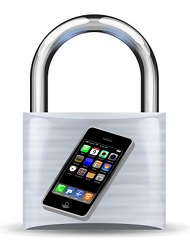Voicekey wins contract from UK government concerning development of new m-commerce platform
 Voicekey, a developer of biometric security solutions, has been awarded a commercial contract from the United Kingdom’s Technology Strategy Board. The contract represents the second phase of a mobile commerce initiative in the United Kingdom. During the first phase, Voicekey was able to introduce new technologies and security features to the mobile space. The second phase will focus on the development of a market-ready mobile commerce solution that will be easily accessible to consumers as well as secure.
Voicekey, a developer of biometric security solutions, has been awarded a commercial contract from the United Kingdom’s Technology Strategy Board. The contract represents the second phase of a mobile commerce initiative in the United Kingdom. During the first phase, Voicekey was able to introduce new technologies and security features to the mobile space. The second phase will focus on the development of a market-ready mobile commerce solution that will be easily accessible to consumers as well as secure.
UK consumers are becoming more interested in comprehensive m-commerce services and platforms
Consumers throughout the United Kingdom have become very interested in the concept of mobile payments and purchasing products from merchants using only their mobile devices. Many consumers have encountered troubling problems with the mobile commerce platforms that they use on a regular basis, however. Lackluster security has put consumer’s financial information at risk of exploitation and poorly designed platforms have created an unfavorable experience for many people. The demand for easy to use, well developed, and secure platforms has been on the rise.
Merchants and consumers are somewhat reluctant to engage in the mobile commerce space
Voicekey aims to address that merchants and consumers have when it comes to mobile commerce. For consumers, accessibility has become a serious issue. Many platforms make use of NFC technology, but few people actually have the NFC-enabled mobile devices needed to use these platforms. For merchants, security is a major issue. Merchants are also somewhat uncertain about the potential revenue growth they could see by engaging mobile consumers more aggressively.
Platform expected to be equipped with biometric security technology but will not be based on NFC technology
Voicekey is expected to develop a platform that will address many of these issues. The platform is likely to make use of the company’s biometric security technology, alleviating some of the security concerns that merchants and consumers have. The platform is also expected to be more accessible to consumers without NFC-enabled devices. The platform may use NFC to some extent, but it will not be entirely based upon the technology.


